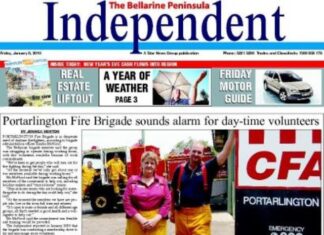JOHN VAN KLAVEREN
The Geelong region may be less multi-culturally sensitive than it believes, according to a new survey.
The national Challenging Racism survey found that support for “racial separatism” was higher in the Barwon South West region than anywhere else in Victoria.
The region also had among the lowest levels of racism denial and cross-cultural interaction, the survey of 12,500 respondents said.
“Barwon South West region residents reported slightly above average levels of opposition to cultural diversity, beliefs in assimilation, belief in a racial hierarchy and self-identified prejudice.
“There are above average levels of identification of out-groups and denial of Anglo-privilege. However, insecurity with cultural difference is at state average levels and denial of racism in Australia is among the lowest levels in the state.
“Below average levels of anti-Indigenous, anti-Jewish and anti-Muslim sentiments mark these areas. Anti-Asian sentiments, however, are above average.”
The report said the region experienced below-average levels of racism in workplaces, sport events, educational settings, during interactions with police and in shops and restaurants.
“There was also below-average levels of experiences of everyday incivilities, namely racist insults and disrespect.”
The report said the region, which stretches from Geelong to the South Australia border, had below-average levels of residents born overseas and of people who speak a language other than English at home.
Low levels of tertiary education and an above-average representation of economic battlers marked the region.
The report suggested anti-racism initiatives for the region, including provision of information on racial equality and encouraging increased interaction.
Geelong council multiculturalism portfolio holder Eddy Kontelj said the region had work to do on fostering multiculturalism.
Council was about to release its first multicultural action plan in the next few weeks, he said.
“We’ve taken a collaborative approach including Victoria Police, (multicultural services provider) Diversitat and the interfaith network among others. It’s been a fantastic response to guide the city on how to better service diverse communities and understand them and their needs,” Cr Kontelj said.
“Immigrants have benefited the region both economically and culturally over the years. The best example is the recent Pako Festa, which is going from strength to strength.”
Get the latest news to your email inbox FREE!
REGISTER





